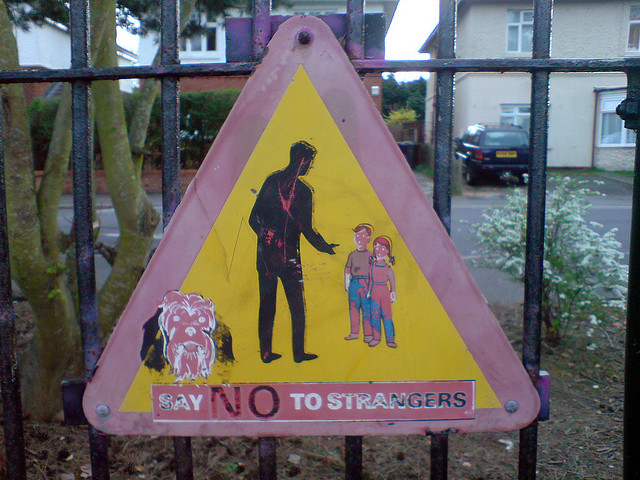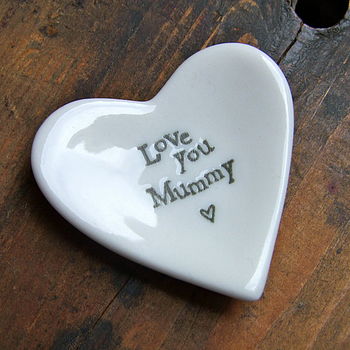
Protect Your Children – The Danger of Stranger Danger
This is a post that I have been meaning to write for quite some time. For some readers, this post will be distressing or upsetting – Trigger Warning for discussion of abuse and abusers.
I am reminded of it every time I read about the angst that many parents have, that their child will be abducted or abused. Often this comes up at times when there has been a high profile case in the newspapers. The worry is understandable, we all want to protect our child from harm.
First, it is important to understand the risks.
Stranger Danger
The big fear is often “Stranger Danger” – that an unknown person will stop his car, entice the child to get into the car and speed away. We have seen the Facebook warnings that go around, often faked stories of suspicious looking man who was seen loitering around school playgrounds. Often people are implored to pass the message on to their friends, and do so without checking Snopes or asking the local police. Invariably these stories are hoaxes and the police find themselves dealing with calls from worried parents.
On average 11 children are killed by a stranger every year in UK, and while that is the “worst fear” of every parent, we do have to recognise that it is, thankfully rare. Those who concentrate on warning their children of “Stranger Danger” miss the opportunity to really protect their child.
Of the children who are abused in UK, only 34% of them were abused by a stranger. Yet we sometimes concentrate our advice on telling the children about strangers.
Never accept sweets or chocolate from a stranger
Never get into a car with a stranger
If you feel unsure or are frightened of a stranger, YELL, RUN, TELL
Always tell a trusted adult if you feel frightened by a stranger
Run towards a shop or groups of people if you feel threatened
Make sure your parents know where you are and when you will be back
Does this lure parents and children into a false sense of security? I think it might. A few years ago, a German TV company conducted an experiment. They had a man approach children and tell them that he had a puppy and would they like to go and see the puppy. Without exception, the children all agreed – at which point the producers stepped in and asked the children if they had been told not to talk to strangers. Most of them had, and one boy even said that he had assessed the situation and felt that he was strong enough to be able to get away if the man was a “bad man”.
Scary? Yes, terrifying.
Children are simply not mature enough to recognise the dangers, and may well make errors of judgement.
To think that we can protect our children by drumming into them that strangers can be bad men, is leaving them open to other dangers. Which is why “Stranger Danger” is no longer taught in schools.
When my children were younger, there was a highly publicised case of abduction in Germany. Many parents were upset and worried about how to talk to their own children and we asked the Kindergarten to organise a talk with the local police. Not for the children, for the parents. This is what they told us.
How an Abuser Thinks
To protect your child, first you have to know how a paedophile thinks. This is distressing and difficult, but a necessary step. We have to understand how they work to be able to stop them. The policewoman who gave the talk said that in the course of her work she has met many abusers, and few of them conformed to the dirty old man in a trench coat stereotype. There were doctors, teachers, manual workers, engineers.. people from all walks of life. There were a few women, but mainly we are talking about men here.
One thing that many had in common was that they sought out children. Scout leaders, youth club leaders, football coaches – of course it is not the case that anyone who is keen to be a youth leader is a paedophile, it is sadly the case that this is the entry for men into the life of children.
They look for vulnerable children. This means children from troubled backgrounds, who are receptive to the attention that they receive from their football coach. Or children who are having a hard time at home or at school. Children who are being bullied, or insecure children. They single this child out by complimenting them, or by offering extra tuition for example. They seek ways to be alone with the child, by keeping them behind after training. This is called “grooming” and is the pre-abuse stage, when they seek to win the child’s confidence and ascertain if that child will be an easy target.
One thing that these men look for is a child whose parents are attentive. For instance in the example of the football coach offering extra training – if your child says, “That sounds great, Coach, but I will have to ask my Mum cause I am not allowed to be late” – that paedophile will more than likely back off.
Sadly, this does not mean that he will not abuse a child, but it will likely not be yours . He does not want to be caught. He will go for the child least likely to tell an adult.
Good Feelings and Bad Feelings
Good feelings – when you are with someone and they make you happy. When they give you a cuddle and you are happy to be cuddled. When you feel comfortable with someone.
Bad feelings – when someone touches you and it makes you feel sad or frightened.
When someone touches them in a way that makes them feel bad, even if that person is someone they know, they should tell an adult – either a school teacher of their parents.
The Importance of Confidence
The most effective protection from abuse is confident children. Children who are secure, who know that they can tell their parents when something is bothering them, who are not scared to say, “I don’t like that. Stop it”. A paedophile will recognise this and not attempt to abuse your child.
Build your children’s confidence by being positive with them, by not putting them down, by encouraging them to have their own opinions (even when they drive you nutty by expressing them all day every day). Bring them up to be confident, assertive, and embrace their strops because that shows that they are willing to stand up for themselves.
Work with them on allowing them to express their opinions. Do not speak for them but allow them to answer when someone asks them a question. From a young age, we have encouraged our children to order their own meals and drinks in a restaurant. We actively encourage them to become confident, independent children.




13 Comments
Robyn/Tee
Really really well said.
LowImpactMama
Really good post. A good reminder about why it’s important to raise confident, happy children.
LittleMe
Excellent post
Mummy Big Bum
I hate reading things like this. I hope you don’t take that as an insult; I merely mean that I can be terribly cowardly and would rather stick my head in the sand than hear of the awful things that can (and do) happen to children. Whilst that was O.K. for the first part of my adulthood, it is not acceptable now; my son is approaching nursery age so will be leaving my side once in a while – like it or not, these are the dangers I will have to open my eyes to.
This is a different tangent than what I have experienced on my blog in the last few days…but the parents who are concerned by online paedophilia will also benefit by being reminded of what you have said. Would you mind if I link this page to my next post?
Lynn Schreiber
I know what you mean, I have put off writing this post for some time for that reason.
Of course you can link to this post. I will be doing another post about how to protect your child online – which I am researching at the moment. I realised the other day that although I had parental controls on my daughter’s netbook, I had not thought to restrict google image search. Thankfully I noticed before she saw anything dodgy, but it made me realise that I have to take a closer look at how to protect them online.
Pingback:
Granny
Good post. Even things like ordering in restaurants are important for the children to gain confidence. Will remember that when with grandchildren.
Pingback:
SS
An excellent post. This is an issue I’ve forced myself to think about. It’s so hard to broach this topic with children…”please stop playing nice happy games for a minute do I can discuss something dark and scary with you”.
Though the poem Jim had a marvellous effect on my girl; she no longer does a runner!
PS. I especially loved the line “encourag(e) them to have their own opinions (even when they drive you nutty by expressing them all day every day)”
Lynn
Thank you. Yes – that is it exactly. They are so excited with the great new technology and it does seem like raining on their parade to tell them the dark side of the internet.
Butterflyexperience
Very well put.
I think it’s easy to forget that everyone out there does not have good intentions and we must protect our children as much as possible
Pingback:
Pingback: